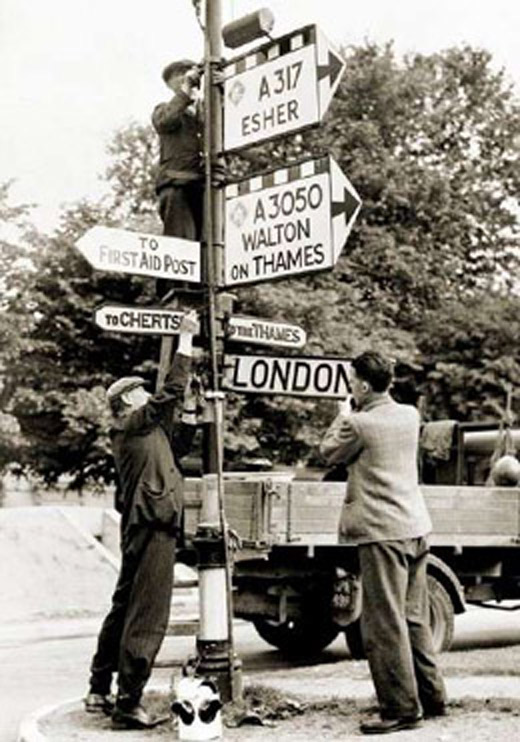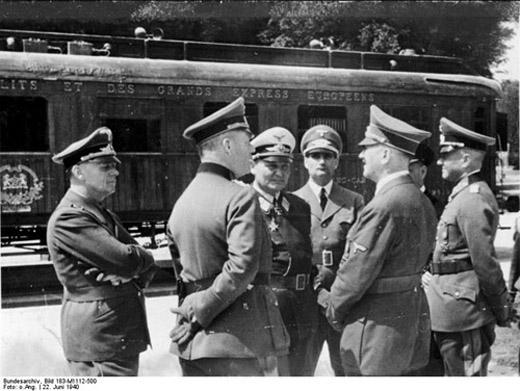Air Operations, Europe
50 German aircraft make scattered night raids over many parts of England, guided by radio beams.
[Battle of the Atlantic
- U-boat U-122 and her 48 member crew disappear in the Irish Sea area possibly sunk by a mine. A 'Special Service Vessel', the Cape Howe (decoy ship), the Prunella, is sunk by U-28 west of Ireland with the loss of 56 men. 27 of the crew are rescued by the French steamer Casamance and 13 more by the British destroyer Versatile on the 27th.
- The British submarine H-44 sinks the Danish steamer Alfa (844t) off Texel.
- The French steamer Mencanicien Principal Carvin (4282t) is sunk by German bombing at Le Verdon.
- U-38 sinks the Belgian steamer Luxembourg (5809t) west of St Nazaire with the loss of 5 crewmen.
- U-43 sinks the British steamer Yarraville (8627t) southwest of Figuera da Foz, Portugal with the loss of 5 of her crew. 45 survivors are picked up by the French trawler Marie Gilberte.
- U-47 attacks 3 steamers in convoy HX-49. The San Fernando is badly damaged and taken in tow but sinks before arriving in port. 17 survivors are picked up by the British sloop Sandwich.
- U-52 sinks the Finnish steamer Hilda (1144t) in the Bay of Biscay after she had been damaged by German bombing. 5 of the crew are lost, 11 survive.
British Remove Signs as Part of Anti-invasion Measures |
 |
Diplomatic Relations
Hitler receives the French plenipotentiaries at Réthondes in the Forest of Compiègne in the same railway coach in which the German surrender was signed at the end of the First World War. Gen Keitel reads the dossier accusing the French of deceit and aggression. The German armistice terms are given to the French delegation. The Germans will permit no discussion.
Second Armistice at Compiègne |
 |
All the French are allowed to do is ask for clarification. In addition to the provisions for establishing a vestigial French State and for demobilizing the French Armed Forces there are stringent financial clauses.
Gen Huntziger obtains permission to speak to Gen Weygand on the telephone. Weygand is told of the severe conditions dictated by the Germans: three-fifths of French territory will be under occupation, prisoners of war will not be released, the costs of occupation will be assessed by Germany, and the French army will be reduced to 100,000 men.
[German Raiders
The German auxiliary cruiser Pinguin passes through the Denmark Strait on her outward voyage.
[Japan
Prince Konoye forms a new Japanese cabinet with Gen Hideki Tojo as Minister of War.
[Rumania
King Carol II forms the 'National Party' which includes members of the Iron Guard. Jews are excluded from membership. They are "to guide the moral and material life of the nation".
[Secret War
A specially equipped RAF Anson aircraft detects a radio beam transmitted from Germany in the direction of the Rolls Royce works in Derby. R.V. Jones, who heads British Scientific Intelligence, gives evidence to an important investigating committee concerning a German radio navigation aid code named Knickebein, or 'bent leg'. Churchill gives orders for countermeasures to be developed. Vital progress in this field is soon made and plays a large part in mitigating the effects of the German Blitz in the coming months. Henry Tizard, who, more than any other, has been responsible for organizing the British use of radar, resigns because his advice is disregarded. His resignation confirms the position of the less reliable Frederick Lindemann (Lord Cherwell) as Churchill's principal scientific advisor.
[Western Front
There are Italian attacks in some of the Alpine passes which are easily beaten off despite the weakness of the French forces which are left in these areas.[MORE]
[